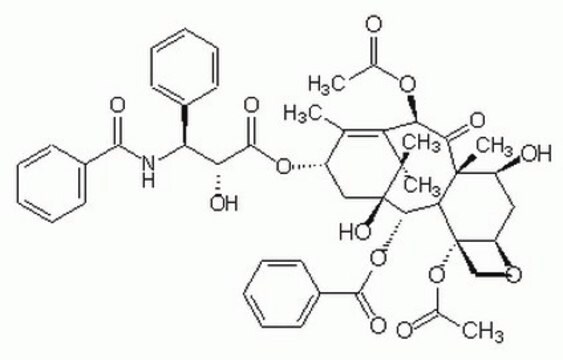T4376
N-p-Tosyl-L-phenylalanine chloromethyl ketone
powder, ≥97% (TLC)
Synonym(s):
(S)-1-Chloro-3-tosylamido-4-phenyl-2-butanone, (S)-1-Chloro-4-phenyl-3-tosylamido-2-butanone, TPCK, Tosyl-L-phenylalanyl-chloromethane
About This Item
Recommended Products
product name
N-p-Tosyl-L-phenylalanine chloromethyl ketone, ≥97% (TLC), powder
biological source
synthetic
Assay
≥97% (TLC)
form
powder
potency
10-100 μM effective concentration
color
white
mp
106-108 °C (lit.)
solubility
DMSO: >10 mg/mL (stable for several months at 4°C.)
ethanol: 20 mg/mL
storage temp.
−20°C
SMILES string
Cc1ccc(cc1)S(=O)(=O)N[C@@H](Cc2ccccc2)C(=O)CCl
InChI
1S/C17H18ClNO3S/c1-13-7-9-15(10-8-13)23(21,22)19-16(17(20)12-18)11-14-5-3-2-4-6-14/h2-10,16,19H,11-12H2,1H3/t16-/m0/s1
InChI key
MQUQNUAYKLCRME-INIZCTEOSA-N
Gene Information
human ... NFKB1(4790) , NKAP(79576) , NKRF(55922) , NOS2(4843) , PTGS2(5743)
Looking for similar products? Visit Product Comparison Guide
General description
Application
- to investigate whether transcription factor NFκB is involved in renalase expression
- to test the role of NF-κB activation
- to study its inhibitory effect on chymotrypsin
Biochem/physiol Actions
Packaging
Caution
Signal Word
Danger
Hazard Statements
Precautionary Statements
Hazard Classifications
Eye Dam. 1 - Skin Irrit. 2 - STOT SE 3
Target Organs
Respiratory system
Storage Class Code
11 - Combustible Solids
WGK
WGK 3
Flash Point(F)
Not applicable
Flash Point(C)
Not applicable
Personal Protective Equipment
Certificates of Analysis (COA)
Search for Certificates of Analysis (COA) by entering the products Lot/Batch Number. Lot and Batch Numbers can be found on a product’s label following the words ‘Lot’ or ‘Batch’.
Already Own This Product?
Find documentation for the products that you have recently purchased in the Document Library.
Customers Also Viewed
Our team of scientists has experience in all areas of research including Life Science, Material Science, Chemical Synthesis, Chromatography, Analytical and many others.
Contact Technical Service














